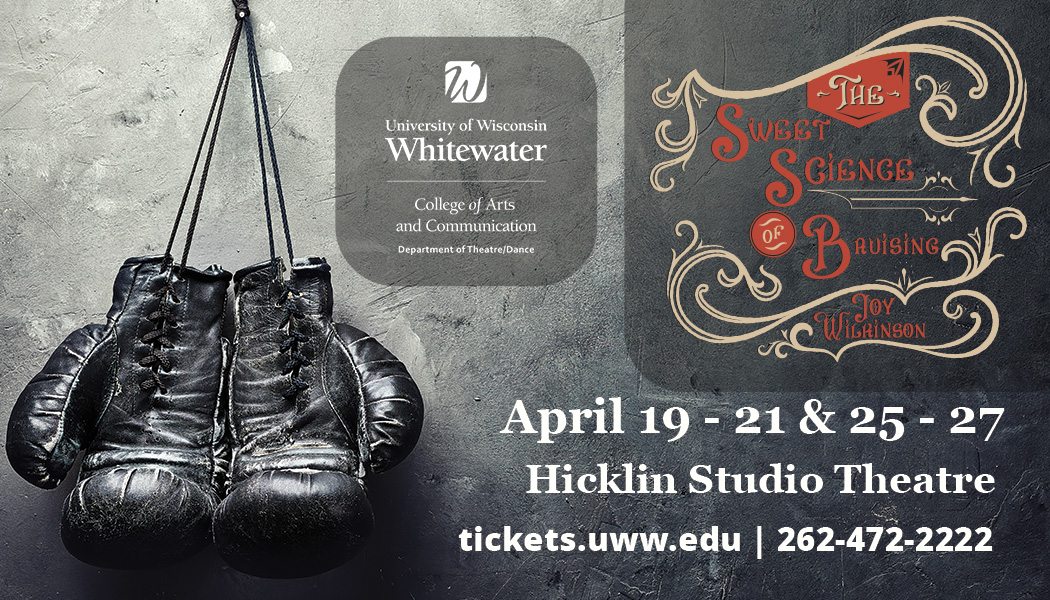Faculty letter to legislators in Madison
The following unedited letter to the editor was written by members of UW-Whitewater faculty.
The letter was written to outline concerns in regards to the budget-repair bill and the actions being taken by Gov. Scott Walker and legislators in Madison.
The open letter expresses opposition to budget proposals that would greatly affect public higher education, K-12 education, the environment, access to health care, and the social safety net.
The letter was approved on March 15 by an overwhelming majority of UW-Whitewater faculty.
A group of UW-Whitewater faculty members left campus at 8:30 a.m. last Thursday to march 42 miles to Madison to deliver the following letter in person.
Faculty planned on arriving in Madison by 10 a.m. Saturday where they would meet with State Senator Jon Erpenbach and Assembly Representatives Andy Jorgensen and Brett Hulsey.
The lengthy march showed a sign of unity and dedication amongst faculty members at UW-Whitewater while also expressing faculty members’ opposition to current events at the Capitol.
To read reactions from the faculty members involved, see the corresponding story in the news section.
Dear Members of the Wisconsin Assembly and Senate,
As faculty members at the University of Wisconsin-Whitewater, we strongly oppose the Budget Repair Bill and many of the provisions in the proposed Biennial Budget.
We ask you to reverse the vote for the amended Budget Repair Bill and to significantly alter the Biennial Budget.
Collective Bargaining
Governor Walker’s Budget Repair Bill is rife with radical changes, most notably the provisions that essentially eliminate collective bargaining rights for state employees.
Major policy changes, such as eliminating public union collective bargaining, should have been a centerpiece of a political campaign.
Instead, as the Milwaukee Journal Sentinel has reported, not once during Scott Walker’s campaign did he mention ending collective bargaining rights for both pensions and health care for public employees.
As far as we can determine, neither did any of the Republicans running for the Assembly or Senate campaign on this platform. There is no public mandate for a policy that was developed in secret.
Drastic Changes
The current economic troubles and deficits in Wisconsin, while serious, do not warrant draconian measures.
In fact, according to a 2011 Report issued by Moody Investor Services, which examined combined state debt and pension liabilities, Wisconsin rated in the top quartile of states.
We are concerned that an atmosphere of fear of an economic crisis is being used to coerce people into acting quickly and perhaps rashly in search of a resolution to this issue.
As academics, we believe in thoughtful, rational and reasoned debate that allows intelligent people to change their mind in light of new information and thoughtful deliberation. Moreover, we worry that lock-step partisanship and political pressure may impede this type of careful and thoughtful analysis and reasoned judgment.
Priorities in the Budget
We disagree with the priorities, both stated and implicit, in the Governor’s Budget Repair Bill and the proposed Biennial Budget.
The amount of new state resources to be devoted to road construction far outstrips the $250 million cuts to the University of Wisconsin System and campuses. Such cuts would be in addition to a loss of a 2% contracted raise in June of 2009, as well as an additional 7-10% pay cut due to an increase in our required health and pension contributions.
At UW-Whitewater and its sister campuses around the state, faculty already make 11%-21% less than faculty members at comparable campuses nationwide; the longer one is a faculty member here, the greater the disparity between our salaries and those of our peers in other states.
At UW-Whitewater, we are currently having great difficulty attracting high quality faculty candidates due to our noncompetitive compensation packages. Understandably, many faculty will no doubt consider leaving if the economic assault on higher education in the state continues.
These deep budget cuts to higher education and the ensuing “brain drain” will negatively impact Wisconsin’s higher education as well as the preparations of a well-educated workforce and citizenry for years to come.
Should not Wisconsin citizens be asked whether they would consider road construction a far higher priority than educating their children and grandchildren?
Moreover, less than two years ago, college and university faculty were granted the right to collectively bargain.
We currently do not have a faculty union; however, there is considerable support for one.
We believe that it should be our choice whether or not we wish to exercise our right to collectively bargain, to stand with our peers to negotiate not only on economic matters, but also on conditions of work.
K-12 Education
K-12 education would also suffer disproportionately in Governor Walker’s budget.
He recommends reducing state payments to schools by $834 million over the next two years and reducing by 5.5% the revenue that schools can generate through local property taxes—roughly $550 per student.
While Governor Walker claims that the requirement that teachers pay more into their pensions and health insurance will compensate for these cuts, according to State Superintendant Tony Evers, an analysis by Andrew Revchosky of UW-Madison’s LaFollette School of Public Affairs reveals that “public school children will suffer the greatest state cut to education since the Great Depression under Governor Walker’s proposed budget.”
Poverty and the Environment
The Budget Repair Bill also targets programs for the poor and negatively impacts Wisconsin’s environment.
The Earned Income Tax Credit for low-income working families is slated for a decrease, and Medicaid cuts of $500 million dollars are proposed.
The proposed biennial budget eliminates state funding for local recycling programs, reduces protections on the water quality of lakes and streams, and defunds programs to ensure clean and safe drinking water.
Mass transit programs, support of alternative energies and energy conservation programs also face drastic cuts.
The quality of our natural environment is not only tied to the health, welfare and very identity of Wisconsinites, it is also closely tied to one of our largest industries, tourism.
The Middle Class
The Budget Repair Bill and Biennial Budget target the middle class for a disproportionate share of the sacrifice.
Only one fiscal tool, namely cuts to programs and services, is being placed on the table.
We think that other tools such as taxes and debt restructuring ought to be considered.
Public money will be redistributed from essential public services, including education, access to health care and environmental protection, to finance even more tax cuts for a privileged minority of businesses.
If these proposals pass, real people, including professors, educators, social workers, prison guards and other state employees and public servants, will see reduced overall compensation packages, while tax breaks are given to businesses.
Such measures will likely thwart economic recovery and will further exacerbate the growing problem of income disparity in the state.
Conclusion
These budgetary decisions will have consequences for decades to come.
The lack of open and reasoned debate on the proposed changes, and the lack of ability to compromise and to discard ideas are not in the best interest of Wisconsin. Therefore, we urge you to reject the Budget Repair Bill and the Biennial Budget in their current form.
Legislators and their constituents have an obligation to examine alternative budget proposals on how to wisely address the state’s budget deficit and at the same time to find ways to move Wisconsin forward.
Respectfully,
Members of the University of Wisconsin-Whitewater Faculty
Traffic lights not needed at Main and Whiton
I would like to make a few valid points regarding the article titled “Whiton, Main Street traffic light project delayed until fall.”
As far back as I can remember, there has been a significant amount of talk and debate in regard to the cross walk situation surrounding the campus, and what plausible solutions there are to correct the dangers that follow.
The City of Whitewater along with the university have put forth great effort and time in trying to figure out what to do to dampen the dangers that students and pedestrians have been facing over the years.
I must admit installing a electronic cross walk indicator at the intersection of Whiton and Main was a positive step in correcting the problem, however I strongly feel that installing a traffic light is an unneeded and expensive alternative.
The reasons I believe this are simply explained. Since the cross walk indicator was installed I among many others have noticed that crossing pedestrians have been abusing the signal and more importantly not putting there safety first.
What I mean by this is that many students feel that simply pushing the button automatically freezes everything around them.
I have noticed on multiple occasions students not even breaking stride, looking both ways, or even pausing for a brief second before parading into the busy intersection of Whiton and Main causing many drivers to slam on their brakes with minimal warning.
Yes, pedestrians have the right of way, we should all be able to remember that from when we took drivers education back in high school; but it doesn’t mean that the second one pushes the indicator button they are safe from all oncoming traffic.
People need to use their brains and realize that drivers can’t stop on a dime and must be given the opportunity to slow down and yield to the people crossing.
The second point that I’d like to make is that the cost of installing a traffic light is an expensive and unneeded solution.
After doing some research, I found that the cost of installing a traffic light (such as the one proposed by the city) will cost tax-payers anywhere from $150,000-$400,000 depending on the significance of the intersection.
That’s a lot of coin to throw at a problem that can be fixed with a few cost effective alternatives.
So what’s my proposal you ask? How about the city takes out the pitfall amber colored bulbs that are installed throughout Main Street, which mind you couldn’t light up a school bus if needed, and install a brighter, higher wattage halogen bulbs; one that will illuminate the areas under scrutiny better.
Then spend a whopping $100 or so and post aluminum signs on each side of the cross walk telling crossing pedestrians that they must wait until all vehicles have come to a complete stop before crossing, I mean it is common sense after all, even though many crossers actions don’t seem to show it.
In closing I just feel that the city along with the university are making a much bigger deal than what is really at hand.
It doesn’t take a room full of educated city council members to figure this one out.
Improve the lighting on Main Street, educate the crossing pedestrians, and use your brain. If these three solutions were used together there wouldn’t be a problem in the first place.
-Curt Patrick












